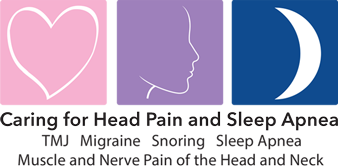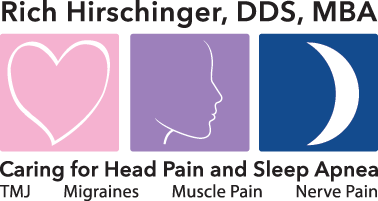

Diplomate American Board of Orofacial Pain
9615 Brighton Way, Suite 323
Beverly Hills, CA 90210
888.981.8981
Myofascial Pain Fact Sheet
More About Myofascial Pain
Chronic myofascial pain (CMP) is a chronic pain condition characterized by trigger points in the musculature and associated fascia that cause pain in localized areas of the body and surrounding areas via referred pain.
When a myofascial trigger point in a muscle is activated, the muscle fibers contract and create a taut band of muscle tissue. The resulting sensation is soreness, aching or burning muscle pain, which may take the form of referred pain, or pain in an area other than the point of origin.
The word "myofascial" comes from "myo," meaning muscle tissue, and "fascia," the connective tissue in and surrounding the muscles.
Chronic myofascial pain is more common among women, middle-aged adults, those with injuries, and those who harbor high stress levels. The cause of CMP is unknown, however it is believed that factors that contribute to myofascial pain onset include repetitive use injuries, trauma, muscle inactivity, and prolonged poor posture.
Myofascial pain can be treated with a plan focusing on the factors contributing to the condition, the pain experienced by the patient and relief of the active myofascial trigger points.
Physical therapy, and specifically a practice called Trigger Point Pressure Release, is meant to release myofascial trigger points by increasing pressure to soften knotty muscle tissue. The treatment known as Spray and Stretch involves a cold spray that distracts the muscle long enough for a therapist to stretch the muscle. An injection of a local anesthetic or corticosteroid to the trigger point site may also be used to relieve trigger point pain in order for the muscle to be stretched. If a trigger point becomes released, the muscle must be regularly stretched and moved throughout its full range of motion.
Effective pain relief from myofascial pain has been found with over-the-counter and prescription NSAIDs as well as tricyclic antidepressants.
A myofascial pain sufferer should remove any suspected contributing factors from their lifestyle and routine. Regular exercise, minimal stress, good posture, adequate quality sleep and a healthy diet, typically with soft foods, are all important to maintaining optimal health.
Dealing with myofascial pain can make a patient feel helpless, but with education about the condition and a strong support network, this feeling can be alleviated. The American Chronic Pain Association and other organizations offer support groups and educational classes for those with CMP.






